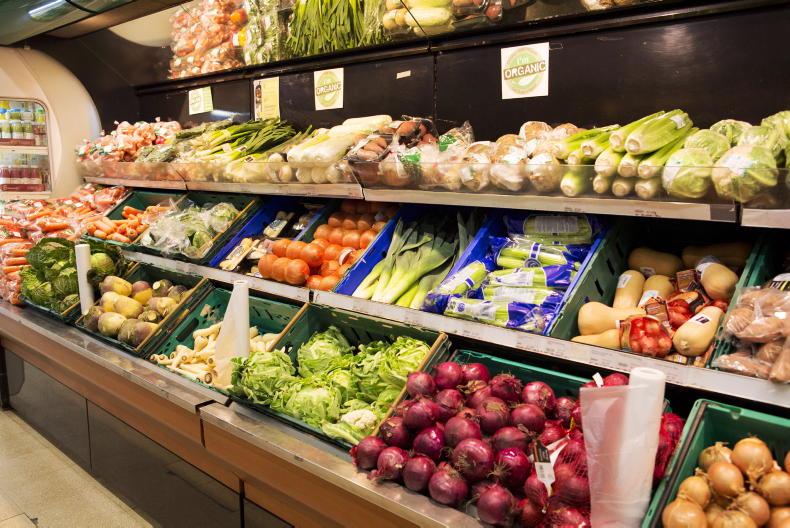Spending three days at the Ploughing gives you an exposure to facets of Irish life that would be almost impossible to replicate elsewhere. At one event, I found myself beside a man I had never met before. We introduced ourselves and I was interested to learn he was an executive with one of the major supermarkets with a nationwide footprint in Ireland. Inevitably, the conversation turned to the price of food and, of course, I recited my concerns on how farmers’ margins were being continuously eroded. I was flabbergasted at his response – “do you realise,” he said, “that the price to the consumer of the basket of our typical groceries is 15% less than it was 10 years ago?” He pointed out that in the case of the main food lines – milk, bread, meat – the prices have hardly moved over that period. Most of the long-established supermarket margins have in fact declined over that period as competition in the sector has visibly increased with most small grocers across the country having disappeared.
The gains of course have gone to the consumer but this is only a continuation of a long-established trend.
Just last week, The Economist brought out its 175th anniversary edition. Founded in 1843, it unashamedly campaigned for the repeal of the Corn Laws but, as it reports, at the time of its foundation, the average person spent 60% of their income on food. Today it is closer to 10%. What is seldom mentioned in these discussions is that the great stimulant to increased productivity was the development of machinery. Once horse and human muscle power was replaced by tractors and combines, the amount of work that could be accomplished quickly and with few people multiplied rapidly. The acre-and-a-half-a-day ploughing output of the horse has been replaced by the 40 acres plus of the tractor. The result has been an explosion in human welfare, with fewer people hungry than ever before and money to spend on health, housing and holidays. For those upset by constant television coverage of war and famine, a book well worth reading is Factfulness by Hans Rosling, which details how the world has improved by so much for so many. It should be in every house or borrowed from the local library. From a farmer’s point of view, there seems little point in pleading for a higher price from supermarkets but surely in the face of such obvious market pressure on farmers, there is a case for a special top-up either by way of an extra VAT refund from central funds, a special food supplementary top-up by way of a direct payment from Brussels or simply an extra charge on food so that farmers get some modest proportion of their productivity gains.
Before saying it can’t be done, racing both dogs and horses, is financed by a betting levy. It’s time to think outside the box in relation to ever-declining food prices.
Read more
Dempsey at Large: competition – suppliers count too
'Fierce' supermarket competition pushes food prices down
Spending three days at the Ploughing gives you an exposure to facets of Irish life that would be almost impossible to replicate elsewhere. At one event, I found myself beside a man I had never met before. We introduced ourselves and I was interested to learn he was an executive with one of the major supermarkets with a nationwide footprint in Ireland. Inevitably, the conversation turned to the price of food and, of course, I recited my concerns on how farmers’ margins were being continuously eroded. I was flabbergasted at his response – “do you realise,” he said, “that the price to the consumer of the basket of our typical groceries is 15% less than it was 10 years ago?” He pointed out that in the case of the main food lines – milk, bread, meat – the prices have hardly moved over that period. Most of the long-established supermarket margins have in fact declined over that period as competition in the sector has visibly increased with most small grocers across the country having disappeared.
The gains of course have gone to the consumer but this is only a continuation of a long-established trend.
Just last week, The Economist brought out its 175th anniversary edition. Founded in 1843, it unashamedly campaigned for the repeal of the Corn Laws but, as it reports, at the time of its foundation, the average person spent 60% of their income on food. Today it is closer to 10%. What is seldom mentioned in these discussions is that the great stimulant to increased productivity was the development of machinery. Once horse and human muscle power was replaced by tractors and combines, the amount of work that could be accomplished quickly and with few people multiplied rapidly. The acre-and-a-half-a-day ploughing output of the horse has been replaced by the 40 acres plus of the tractor. The result has been an explosion in human welfare, with fewer people hungry than ever before and money to spend on health, housing and holidays. For those upset by constant television coverage of war and famine, a book well worth reading is Factfulness by Hans Rosling, which details how the world has improved by so much for so many. It should be in every house or borrowed from the local library. From a farmer’s point of view, there seems little point in pleading for a higher price from supermarkets but surely in the face of such obvious market pressure on farmers, there is a case for a special top-up either by way of an extra VAT refund from central funds, a special food supplementary top-up by way of a direct payment from Brussels or simply an extra charge on food so that farmers get some modest proportion of their productivity gains.
Before saying it can’t be done, racing both dogs and horses, is financed by a betting levy. It’s time to think outside the box in relation to ever-declining food prices.
Read more
Dempsey at Large: competition – suppliers count too
'Fierce' supermarket competition pushes food prices down









SHARING OPTIONS